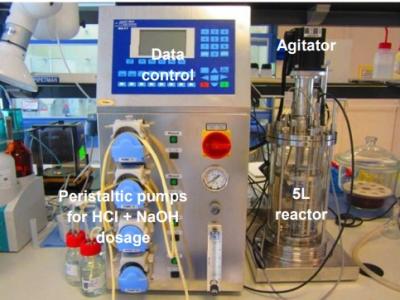Biodegradable material for containment of wastes and metabolic resources

The objective of the activity is to review, compare, trade off, and select materials for the containment of the metabolic resources for long term manned exploration missions.
Today, aboard ISS, the crew is regularly resupplied with necessary metabolic consumables (i.e. food, water and air) coming from Earth. These consumables are generally packaged into dedicated containers, which cannot be re-used and have to be wasted. For food only, the amount of wastes generated by packaging is estimated to be between 300 and 500g/crew member and day, which represents close to 40% of packed food mass. In addition, due to the limited recycling capability of ISS life support system, dedicated packaging, which adds up the mass of ultimate mission wastes, is also necessary for the containment of all the non-reusable wastes generated by the crew. In the context of long term manned exploration missions, regular resupply of the crew with the necessary metabolic consumables becomes technically and economically unfeasible. Therefore the amount of ultimate mission wastes shall be drastically reduced and the development of packaging allowing safe and bio-safe containment of all crew metabolic resources, while being compatible with advanced life support system recycling processes, is necessary.Taking into account all the constraints of long term manned duration mission, and based on literature review supported by tests, it is proposed to define preliminary requirements, review currently available biodegradable material potentially usable as packaging, test efficiency of biodegradation of such materials, identify sub-products of degradation and assess their compatibility with closed-loop life support system processes and finally select the best suited materials for both containment of crew metabolic wastes and food.
